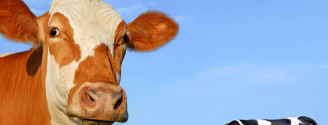Blog
Grazing Licences: avoiding the tax pitfalls
- Posted:
- 23 April 2019
- Time to read:
- 2 mins

Who occupies agricultural land and what activity is really carried out on the land are questions that every land owner should ask themselves to minimise the risk of facing an unnecessary tax liability. For example, the tax consequences of arrangements between owners of grazing land and third parties who graze their animals on that land are not always straightforward. The crucial question for the land owner is whether they are farming the land or whether they are only receiving rent for the use of the land.
Matters are not aided by the unhelpful language often used in legal agreements. References to letting, licences and rents are confusing. However, the language is immaterial because the important issue is the nature of the arrangement and what the parties actually do in practice rather than how it is legally described.
The first question a land owner needs to consider is whether they are granting exclusive possession, for example, if the land owner’s animals are going to remain on the land then exclusive possession is not being granted – a licence is probably being created rather than a tenancy. However, if the land is going to be solely occupied by a third party’s animals then a tenancy may be created and from that it would follow that only the tenant is occupying the land.
Who occupies the land is important for Income Tax purposes– farming activities are determined by occupation of the land and flowing from this determination is the treatment adopted for Capital Gains Tax and Inheritance Tax purposes. If the grazier is in occupation of the land then the land owner is likely to find that Capital Gains Tax reliefs (such as Entrepreneur’s Relief and Rollover Relief) are no longer available on the grazing land. In addition, that land will no longer count towards determining whether the farmhouse qualifies for Agricultural Property Relief for Inheritance Tax.
It is important therefore that land owners scrutinise the arrangement to determine who is actually occupying the land, and for what purpose, to avoid incurring unnecessary tax liabilities in the future and destroying potentially valuable tax reliefs.
If you need any advice on the above or any agricultural issue then please contact one of our agriculture specialist lawyers on 01206 217 629 or alternatively you can email me at [email protected]








